Merlin Mann
description: an American writer, blogger, and podcaster known for coining the term 'Inbox Zero' and for his focus on productivity techniques.
15 results

Discardia: More Life, Less Stuff
by
Dinah Sanders
Published 7 Oct 2011
Write yourself notes. Leave yourself voicemails. Send yourself emails. It’s fine. No one remembers everything. Really. Symptom #6: Procrastination Solution #6: Bottom Line: Deeds are Better Joining a Facebook group about creative productivity is like buying a chair about jogging. —Merlin Mann, productivity guru and humorist You have a choice Ah, procrastination: the villain in so many stories of the great adventures we might have had—if only. Here’s what’s certain: You do not always in the moment want to do what you know most serves your goals in the big picture. You drag your feet, check email and social messaging services “just once more,” follow that link to the funny YouTube video, flip through magazines or TV channels, anything but buckle down to the task in front of you.
…
The principles aren’t too different: Set up groupings that make subsequent actions easier, move things to the appropriate group the moment you decide what it is, and repeatedly use quick laps to knock down big or constant projects. This section includes many tips particularly relevant to email for work as well as ideas that will help you build a better relationship with your personal email. Email basics First, a few basic principles (and a thank-you to Merlin Mann and others who have taught me many things about managing email): Start your day with energy, not email. Take a moment to clear your head, jot down any lower priority loose ends that are distracting you and throw them in your inbox (physical or digital) to address later. Then, get to work on one of your three top tasks for the day.
…
Dive in, knock out a task appropriate to your current resources and energy level, then surface and check email quickly before diving in again on the next prioritized task. By “quickly,” I mean “processing.” For anything that generates a new task for your list, only ask the question, “Is this more important than what I was planning to do next?” If the answer is no, which it usually is, carry on as planned. Merlin Mann said it beautifully: “Don't let the blur of movement try to replace one elegantly completed task.” Pay for checking email. If you find yourself checking mail far more often than actually results in a change in your plan of action, start forcing yourself to complete the next task on your list before you are allowed to check again.
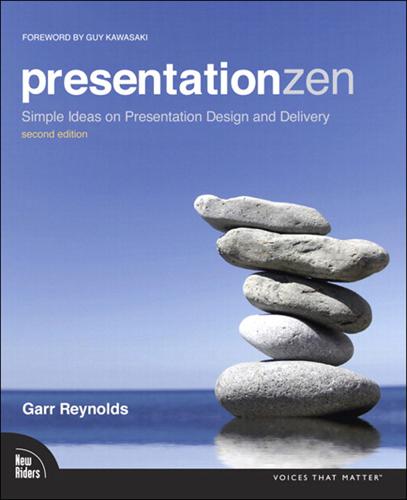
Presentation Zen
by
Garr Reynolds
Published 15 Jan 2012
The slides Takahashi uses in his presentations are displayed at a rapid pace and number well over a hundred per talk. The samples here are just a few from a live presentation where he explained the origins of his “Takahashi Method.” Check out his Slideshare link above to see more samples. Inbox Zero Merlin Mann Productivity Guru and Creator of 43 folders www.43folders.com www.merlinmann.com The slides shown here are part of a talk Merlin Mann gave in the summer of 2007 at Google’s Tech Talk series. The presentation was about strategies for dealing with high-volume e-mail and the importance of getting your inbox to zero. These simple slides—created with images from iStockphoto.com—served as a good supportive backdrop for his story.
…
Although I could not include all the slides in this book, I want to thank all the people who submitted sample slides, including: Jeff Brenman, Chris Landry, Scott B. Schwertly, Jill Cadarette, Kelli Matthews, Luis Iturriaga, Dr. Aisyah Saad Abdul Rahim, Marty Neumeier, Markuz Wernli Saito, Sangeeta Kumar, Allysson Lucca, Pam Slim, Jed Schmidt, Merlin Mann, and many others. Also, a big thank you to Dr. Andreas Eenfeldt in Stockholm and Phil Waknell and Pierre Morsa in Paris. And, of course, my biggest supporter in all this was my wife, Ai, who was always understanding and a great source of inspiration and ideas (and occasionally, chocolate-chip cookies).
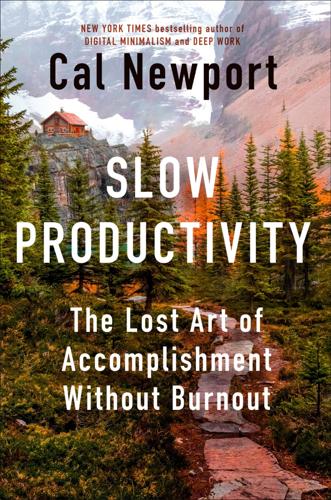
Slow Productivity: The Lost Art of Accomplishment Without Burnout
by
Cal Newport
Published 5 Mar 2024
Containing tasks is not about escaping the small. It’s instead about making these efforts as painless as possible. Seeking, as I once put it, that “low-stress sweet spot.” SYNCHRONIZE In the fall of 2020, I published a long piece for The New Yorker titled “The Rise and Fall of Getting Things Done.” It opened on the story of Merlin Mann, a web designer and freelance project manager who found himself in the early 2000s increasingly overwhelmed by his work. It was at this point that he discovered David Allen’s Getting Things Done (GTD) methodology. Allen’s systematic approach to organizing lengthy task lists was exactly what Mann felt he needed.
…
One thirty-minute docket-clearing session can save a team from hours of highly distracting inbox checking and back-and-forth emailing. It’s hard to overemphasize the sense of relief granted by these two simple synchronization methods. When you separate work from the ad hoc conversations that surround it, what you’re left with might not be all that intimidating. Merlin Mann discovered that even highly technical task management systems couldn’t banish the sense of overload increasingly afflicting twenty-first-century office workers. The cure isn’t to be found in smarter task systems, but instead in a return to something simpler, and more human: regular conversation.
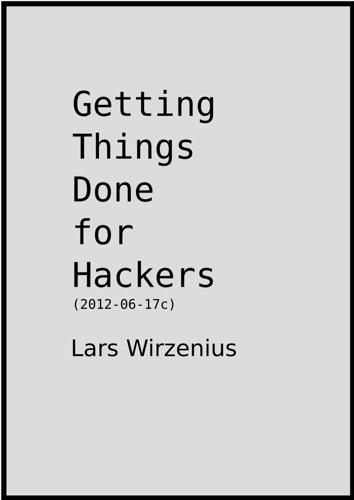
Getting Things Done for Hackers
by
Lars Wirzenius
Published 15 Jun 2012
Something about GTD spoke to geeks, and they blogged about it, and dived into endless discussions about which color pen to use to write things down, or which software to use to keep an outline on what color computer. By 2007 the buzz had mostly died, and those who liked GTD kept using it. An influential blogger during that era was Merlin Mann, and his most important creation was “Inbox Zero”. It’s an elegant condensation of the GTD system for dealing with e-mail, and that may be all you need. Many of us hackers pretty much do everything via e-mail, so if you get that under control, you’ll be fine. Go read. Technicalities This book is written using an Ikiwiki instance at https://gtdfh.branchable.com/, hosted on the Branchable service.
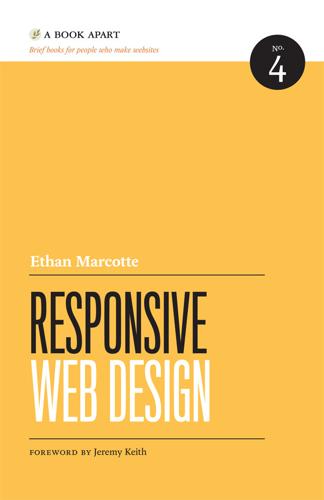
Responsive Web Design
by
Ethan Marcotte
Published 4 Jun 2011
And I don’t say that just out of concern for mobile visitors: regardless of whether our visitors were on a phone-or a desktop-based browser, we would have been penalizing them with extra markup. Meet “mobile first” When you have a free moment (and a stiff drink in hand), I recommend browsing through Merlin Mann’s “Noise to Noise Ratio” Flickr set (http://bkaprt.com/rwd/46/). These screen grabs showcase some of the most content-saturated pages on the web: the pages are drowning in a sea of cruft. And the actual article, both paragraphs of it, is nigh unfindable. While the sites in Merlin’s gallery might be new to you, I wager the problems they demonstrate are pretty familiar.
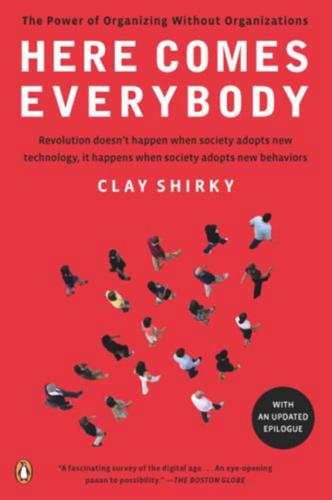
Here Comes Everybody: The Power of Organizing Without Organizations
by
Clay Shirky
Published 28 Feb 2008
If we want large systems where attention is unconstrained, fame will be an inevitable by-product, and as our systems get larger, its effects will become more pronounced, not less. A version of this is happening with e-mail—because it is easier to ask a question than to answer it, we get the curious effect of a group of people all able to overwhelm one another by asking, cumulatively, more questions than they can cumulatively answer. As Merlin Mann, a software usability expert, describes the pattern:Email is such a funny thing. People hand you these single little messages that are no heavier than a river pebble. But it doesn’t take long until you have acquired a pile of pebbles that’s taller than you and heavier than you could ever hope to move, even if you wanted to do it over a few dozen trips.
…
Two interesting pieces on social networking are: danah boyd’s “Identity Production in a Networked Culture: Why Youth Heart MySpace” (transcript of her AAAS talk from 2006 at www.danah.org/papers/AAAS2006.html), describing the forces that led to the success of those services among teens; and an untitled weblog post by Danny O’Brien (www.oblomovka.com/entries/2003/10/13) describing the tensions among public, private, and secret modes of conversation in social media. Page 94: Email is such a funny thing Merlin Mann offered that description of email at “The Strange Allure (and False Hope) of Email Bankruptcy” (www.43folderscom/2007/05/30/email-bankruptcy-2/. ). Page 99: “Conversation is king. Content is just something to talk about.” Cory Doctorow offered that observation in a blog post on BoingBoing.net entitled “Disney Exec: Piracy Is Just a Business Model” (www.boingboing.net/2006/10/10/disney-exec-piracy-i.html).
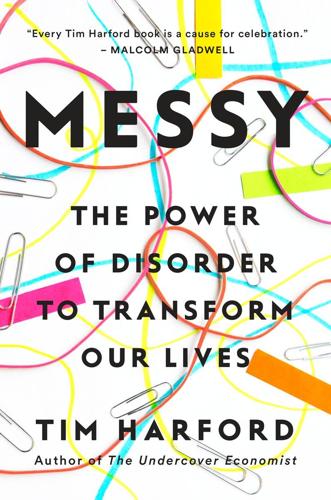
Messy: The Power of Disorder to Transform Our Lives
by
Tim Harford
Published 3 Oct 2016
Keeping things in their places will help you keep track of your keys and your corkscrew. Yet it will be much less help in dealing with your documents or your e-mail, because the system will buckle under not only the volume of incoming information but its fundamental contradictions and ambiguities. Merlin Mann, a productivity expert, has skewered the desire to over-organize a list of tasks in a fast-moving world. Imagine you’re making sandwiches in a deli, says Mann. The first sandwich order comes in and you start spreading the mayonnaise on a slice of rye bread. But wait—the lunchtime rush is coming.
…
Franklin’s discussion of his virtue journal is in Part Two of his autobiography (New York: Henry Holt, 1916 ed.), available online at http://www.gutenberg.org/ebooks/20203. 2. John Bach McMaster, as quoted ibid., n. 70. 3. Daniel Levitin, The Organized Mind (London: Penguin, 2015). 4. Merlin Mann, “Inbox Zero,” talk delivered at Google Tech Talks, July 23, 2007, https://www.youtube.com/watch?v=z9UjeTMb3Yk. 5. Jorge Luis Borges, “John Wilkins’ Analytical Language” (1942), Selected Non-Fictions, ed. and trans. Eliot Weinberger (New York: Viking, 1999), p. 231. 6. Eric Abrahamson and David Freedman, A Perfect Mess (London: Orion, 2007), pp. 156–157. 7.
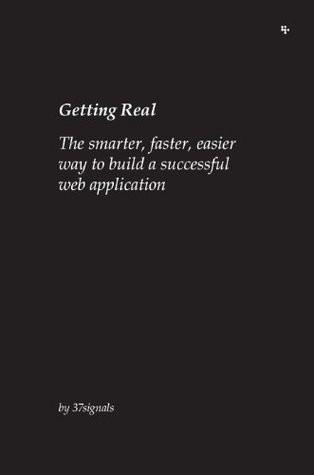
Getting Real
by
Jason Fried
,
David Heinemeier Hansson
,
Matthew Linderman
and
37 Signals
Published 1 Jan 2006
You're not going to just say words to sound smart. It also levels the playing field by reframing the question as a collaborative conversation. By learning how exact your estimate needs to be (and why), you can work together to develop a shared understanding about the true factors behind the numbers. —Merlin Mann, creator and editor of 43folders.com Solve The One Problem Staring You in the Face My absolute favorite thing to happen on the web in recent memory is the release and adoption of the "nofollow" attribute. Nobody talked about it beforehand. There were no conferences or committees where a bunch of yahoos could debate its semantic or grammatical nature.
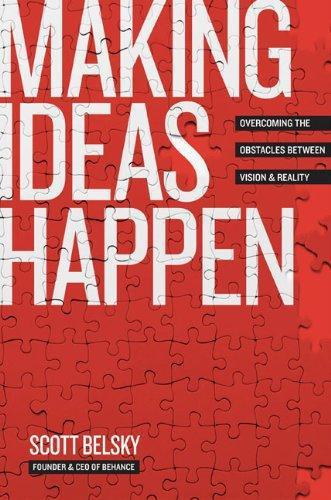
Making Ideas Happen: Overcoming the Obstacles Between Vision and Reality
by
Scott Belsky
Published 31 Mar 2010
Use a Responsibility Grid to decide who does or does not need to get involved with whatever comes up. Create windows of nonstimulation. To achieve long-term goals in the age of always-on technology and free-flowing communication, create windows of time dedicated to uninterrupted project focus. Merlin Mann, founder of the productivity Web site 43folders.com, has called for the need to “make time to make.” It is no surprise that Mann is also known for begging people not to e-mail him (in fact, he refuses to answer any suggestions or requests via e-mail). After years of writing about productivity and life hacks, Mann realized that the level of interruption increases in direct proportion to one’s level of availability.
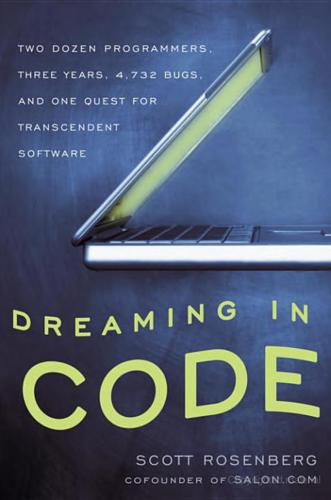
Dreaming in Code: Two Dozen Programmers, Three Years, 4,732 Bugs, and One Quest for Transcendent Software
by
Scott Rosenberg
Published 2 Jan 2006
Author Neal Stephenson explained in a 2005 New York Times op-ed: “To geek out on something means to immerse yourself in its details to an extent that is distinctly abnormal—and to have a good time doing it.” True geeks have a capacity to geek out on almost anything—even kitchen cleanup. An enthusiast of productivity software named Merlin Mann, who in 2004 started a blog called 43 Folders that quickly became a cult favorite among programmers, once composed a love letter to a book he was reading called Home Comforts: “Some deranged fold of my lizard brain gets most turned on by nine detailed pages on how to wash your dishes . . . . I think my wonderfully tidy (and endlessly patient) girlfriend has probably resigned herself to the fact that I only get really interested in something when it involves some kind of fancy system with charts and documentation.”
…
“To geek out on something”: From Neal Stephenson, “Turn On, Tune In, Veg Out,” New York Times, June 17, 2005, and also at http://www.nytimes.com/2005/06/17/opinion/17 stephenson.htm?ex=1276660800&en=a693ccc4ec008424&ei=5090 &partner=rssuserland&emc=rss. “Some deranged fold of my lizard brain”: Merlin Mann on his 43 Folders blog, September 15, 2004, at http://www.43folders.com/2004/09/15/home-comforts-illustrated-housekeeping-pr0n/. Jennifer Tucker, Abby Mackness, Hile Rutledge, “The Human Dynamics of Information Technology Teams,” in Crosstalk, February 2004, at http://www.stsc.hill.af.mil/crossTalk/2004/02/0402 Tucker.htm.

Effective Programming: More Than Writing Code
by
Jeff Atwood
Published 3 Jul 2012
We typically overestimate how much we’ll actually get done, and multi-tasking exaggerates our own internal biases even more. Whenever possible, avoid interruptions and avoid working on more than one project at the same time. If it’s unavoidable, be brutally honest with yourself — and your stakeholders — about how much you can actually get done under multi-tasking conditions. It’s probably less than you think. Merlin Mann@hotdogsladies “Good thing you’re tagging all those “Low Priority” tasks. God forbid you’d ever lose track of shit that’s not worth doing.” 12:43 PM – 1 Feb 12 * * * Become a Hyperink reader. Get a special surprise. Like the book? Support our author and leave a comment! III. Principles of Good Programming The First Rule of Programming: It’s Always Your Fault Jeff Atwood@codinghorror “We should endeavor to fix ourselves before accusing the world of being broken.” 12:22 PM – 30 May 12 You know the feeling.
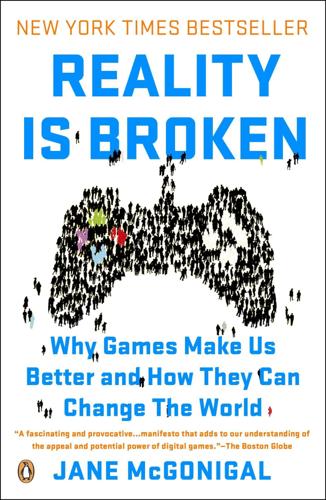
Reality Is Broken: Why Games Make Us Better and How They Can Change the World
by
Jane McGonigal
Published 20 Jan 2011
To make it easy to adopt this habit, life hackers have created desktop and mobile phone applications that buzz alternately every ten and two minutes to keep you on track. Life hacking positions itself in direct contrast to self-help; it’s meant to be a more collective way of working out solutions and testing them out together. As Merlin Mann, one of the leading life hackers, explains, “Self-help books tend to be about lofty ideas, whereas life hacks are about getting things done and solving life’s problems with modest solutions.”10 Any good hack—whether it’s a computer hack or a life hack—should be free to adopt and extremely lightweight—meaning easy and inexpensive to implement—without any special equipment or expertise.
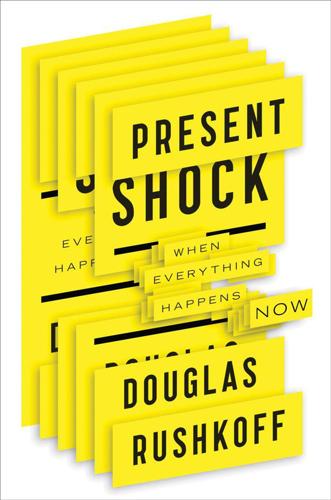
Present Shock: When Everything Happens Now
by
Douglas Rushkoff
Published 21 Mar 2013
Stewart Brand, The Clock of the Long Now: Time and Responsibility (New York: Basic Books, 1999), 49. 4. Alfred Korzybski, Science and Sanity: An Introduction to Non-Aristotelian Systems and General Semantics (Lakeville, CT: International Non-Aristotelian Library Pub.; distributed by the Institute of General Semantics, 1958), 376. 5. Ibid. 6. Productivity guru Merlin Mann is the originator of the term “inbox zero,” but the idea was first posed by Mark Hurst in his 2007 book Bit Literacy. I have used both their systems with success but have found myself differing with them on the question of email—most likely because email and the ways we receive it have changed over the past decade. 7.
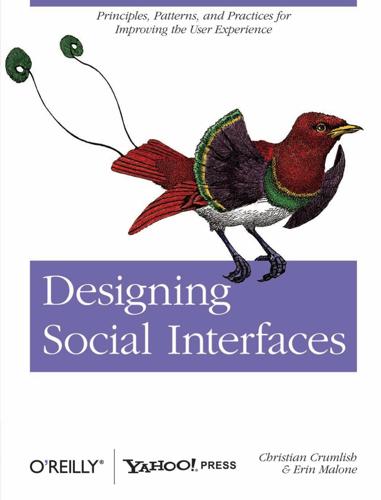
Designing Social Interfaces
by
Christian Crumlish
and
Erin Malone
Published 30 Sep 2009
Many people consider these awards tacky and pushy, but they do represent an innovation invented by users and permitted (but not directly supported) by the Flickr UI. In this way (with or without awards) groups can function as a browsing “pivot” for users, taking them from the image of a friend to a related group, and then on to other images (see Figures 2-4, 2-5, and 2-6). Figure 2-4. A caricature of Merlin Mann in the style of da Vinci’s “Vetruvian Man” prompts an invitation to a group dedicated to just such parodies and variations. Figure 2-5. The Vitruvian variations group showcases a series of images with a common theme. Download at WoweBook.Com Palimpsest 23 Figure 2-6. Another image in the group then prompts this further invitation that appears to facetiously parody the whole “Hi, I’m an administrator for a group called…” social interaction.
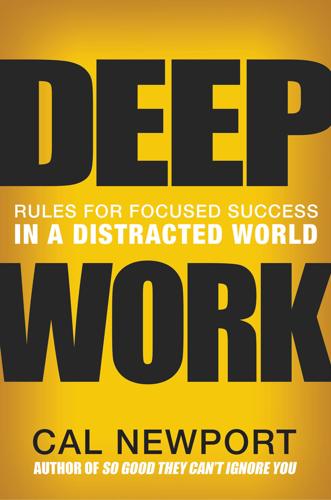
Deep Work: Rules for Focused Success in a Distracted World
by
Cal Newport
Published 5 Jan 2016